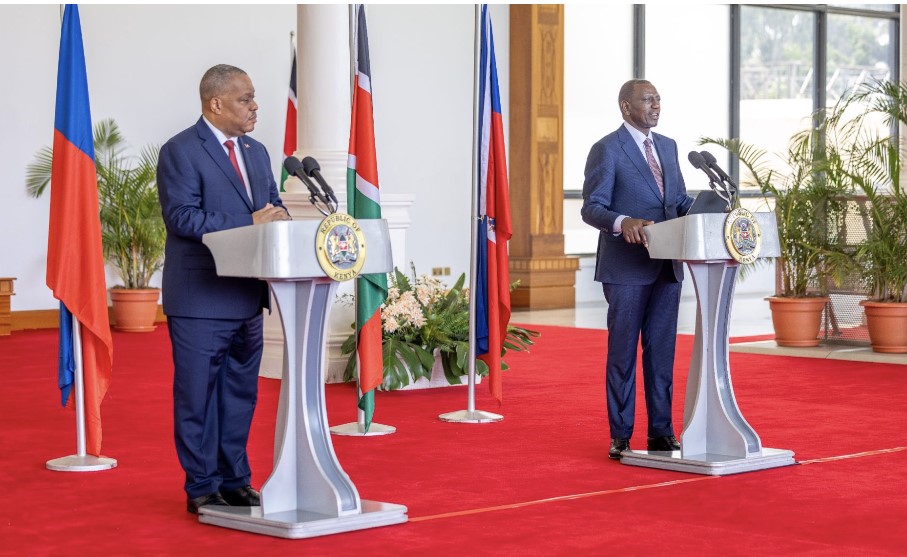
Haitian Prime Minister Garry Conille has been dismissed by the country’s ruling council, less than six months after taking office.
The move threatens various initiatives, including the Kenyan-led Multinational Security Support (MSS) mission in Haiti.
An executive order, signed by eight of the council’s nine members, named businessman and former Senate candidate Alix Didier Fils-Aime as Conille’s successor.
Conille, a former United Nations official, was appointed to help steer Haiti through a gang-led security crisis and lay the groundwork for the country’s first presidential elections since 2016.
In a letter, Conille condemned his ouster as illegal, stating it raised “serious concerns” about Haiti’s future. Haiti currently lacks both a president and parliament, and according to its constitution, only parliament has the authority to dismiss a sitting prime minister. Conille had assumed office on June 3.
“This resolution, taken outside any legal and constitutional framework, raises serious concerns about its legitimacy,” Conille stated in the letter.
The decision could affect discussions at the U.N., where a draft resolution is in place for the Security Council to consider deploying a U.N. peacekeeping operation to Haiti, replacing the multinational force. Washington officials, who have backed Conille’s administration, have urged the council to prioritize Haiti’s urgent needs.
On Friday, U.S. Secretary of State Antony Blinken spoke with U.N. Secretary-General António Guterres about Haiti’s security situation, acknowledging the progress made by the Kenyan-led mission.
Last week, Blinken also spoke with President William Ruto, who is preparing to send an additional 600 Kenyan police officers to Haiti, joining the 416 personnel already deployed from Kenya, Jamaica, Belize, and The Bahamas.
“In the call, Blinken thanked Ruto for Kenya’s continued leadership of the mission as it works with Haitian counterparts to restore peace and security to the Haitian people,” State Department spokesperson Matthew Miller said.
Kenya, which leads the mission, has already reclaimed areas previously controlled by gangs. Conille visited Kenya in October to advocate for more officers to be sent to Haiti.
Reports indicate that the council met with national security officials before deciding on a replacement for Conille. The decision followed hours of discussions and political maneuvering on Friday and weeks of tension between Conille and Leslie Voltaire, president of the nine-member council. Last month, Voltaire’s council, which assumed leadership in April, called for a cabinet reshuffle, a demand Conille resisted.
The Transitional Presidential Council (TPC) was created after Conille’s predecessor, Ariel Henry, was forced from office by gang networks controlling parts of Port-au-Prince. Henry left Haiti for a summit in Guyana on February 25, 2024, but was unable to return after gang members seized the capital’s international airport.
Since January, violence has claimed over 3,600 lives, with more than 500,000 Haitians displaced, according to U.N. data. Hunger is also a major concern, with two million people facing emergency levels of food insecurity.
Meanwhile, Jimmy Chérizier, a prominent gang leader known as “Barbecue,” has expressed willingness to end the violence if armed groups are included in discussions on forming a new government.
Haiti has been without a president since Jovenel Moïse’s assassination in July 2021, leaving a power vacuum that has allowed gangs to expand their control.
Last month, hundreds of Kenyan police officers were deployed to Haiti to assist in restoring stability, with additional reinforcements expected soon.
On Friday, the U.N. Human Rights Office in Port-au-Prince reported nearly 4,900 deaths between January and September, underscoring the severity of Haiti’s ongoing crisis.
Credits: BBC NEWS




